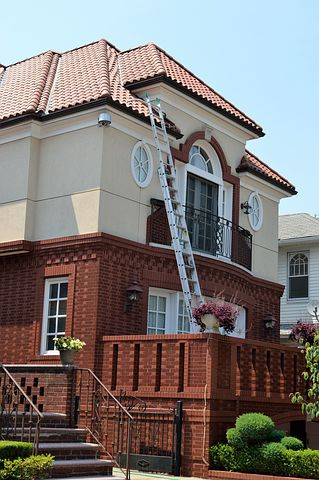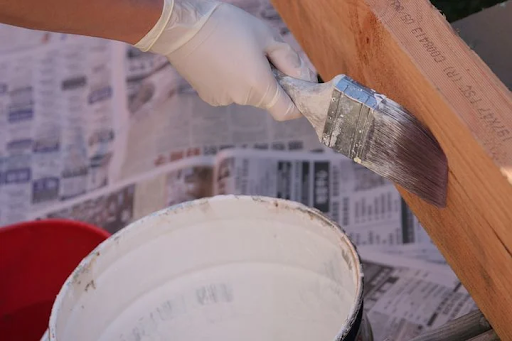If you’ve ever planned a home renovation before, you already know that the hardest part of any home improvement or repair job is finding a reliable, skilled contractor to do the work.
 The best contractors are often kept busy, forcing homeowners to schedule their renovations months in advance. And, in many markets, it can be hard to even get quotes from contractors, much less settle on a company that you feel comfortable using.
The best contractors are often kept busy, forcing homeowners to schedule their renovations months in advance. And, in many markets, it can be hard to even get quotes from contractors, much less settle on a company that you feel comfortable using.
When it comes to finding contractors, where do you even start looking? It obviously helps if you know exactly what you want, so you can get accurate, detailed quotes.
You’ll need to know where to look for recommendations, and then begin the long process of interviewing contractors, getting quotes, checking licensing, and hammering out the details of the contract before your project can begin.
Ask Around for Recommendations
Before you start interviewing contractors for your potential home renovation, you should have a good idea of the kind of work you want to be done and look for someone who specializes in doing that kind of work. You wouldn’t hire a contractor that specializes in decks to remodel your bathroom, or these glass staircase installers Newcastle to install a new kitchen, would you?
If you know someone who has had a similar project completed recently and can recommend a contractor, great. But that’s a one-in-a-million stroke of good luck. You might have friends or family connections in the industry, but if you don’t know where to start looking for recommendations, head down to your local, friendly, independently owned hardware store. The employees there will know who buys the highest-quality supplies and materials, who has been in business the longest, and who is responsible enough to pay their bills. You can also contact your local chapter of the National Association of the Remodeling Industry to get a list of professional remodelers in your area. Or, you could join a home services club to get connected with pre-vetted, qualified local contractors. You can find one of the most popular such organizations here: https://www.canduhome.com/
Vet for Licensing and Complaints
Early in the process, you’ll want to make sure any contractors you’re considering hiring are licensed and bonded. Ask up front for their licensing, insurance, and bonding information, and then verify that information with the appropriate state or local agencies. Check with your state’s consumer protection office to make sure previous clients haven’t filed any complaints against your contractors.
Conduct Phone Interviews
Once you’ve found some contractors who specialize in the type of work you want done, you’ll need to start vetting them by conducting phone interviews. Ask the following questions:
- Do you take on jobs the size of my job?
- Can you give financial references from banks and suppliers?
- How many other jobs do you have going on concurrently?
- How long have you enjoyed working relationships with your subcontractors?
- Can I get a list of references?
 Make sure to take notes on each contractor’s answers to these questions. Ask to see a portfolio, too — it should contain either digital or hard copy photos of previous jobs, including before, during, and after pics; First State Building and Design, for example, has a portfolio on their site (https://fsbd.co) to show potential customers what they are able to achieve. All photos should be clear, and at least some of the projects should be recent. Look out for red flags in your phone interview — any contractor that can’t keep subcontractors around, doesn’t want to provide financial references, or doesn’t want to provide previous customer references is suspect. And, while working on many jobs concurrently may not necessarily be a red flag, it could mean that your job will take longer than you’re willing to wait.
Make sure to take notes on each contractor’s answers to these questions. Ask to see a portfolio, too — it should contain either digital or hard copy photos of previous jobs, including before, during, and after pics; First State Building and Design, for example, has a portfolio on their site (https://fsbd.co) to show potential customers what they are able to achieve. All photos should be clear, and at least some of the projects should be recent. Look out for red flags in your phone interview — any contractor that can’t keep subcontractors around, doesn’t want to provide financial references, or doesn’t want to provide previous customer references is suspect. And, while working on many jobs concurrently may not necessarily be a red flag, it could mean that your job will take longer than you’re willing to wait.
Check References
Any reputable contractor will provide you with a list of previous job references you can check up on.
When vetting a contractor, the list should include dates, but don’t get spooked right away if there are gaps in the dates — ask for an explanation first. Maybe your contractor took time off or had a serious illness. On the other hand, if none of the jobs are recent, that is a red flag.
If you don’t have time to call all of the references on a contractor’s list, you may want to stick to calling references for jobs that were done a while ago, so you can ask how the work held up. You’ll also want information about:
- Whether and how well the contractors stayed on schedule
- Whether costs were reasonable
- Whether the job site was kept neat and problems addressed promptly
- How punctual the contract was
- How well the work has held up
If references are negative or ambivalent about a contractor, you should cross them off your list. If you can, it’s worth visiting previous customers in their homes so you can see the work in person.
Meet with Contractors Face-to-Face
Choose which contractors you want to meet with face-to-face based on their answers to the phone interview questions, and then show them around your place so they can get an idea of the scope of the work. Talk in detail about what you want done and try to get a feel for how well you can work with this person.
Get Everything in Writing
Once you’ve narrowed it down to two or three contractors you like, you can get quotes. Get them in writing and in as much detail as possible. Once you’ve chosen a contractor, make sure the contract spells out the details of the work and payment schedules, what milestones trigger payments, what materials the contractor will use, and what timeline they’ll stick to.
Finding a good, reliable contractor to do home improvement work can be the hardest part of the job, but with a little perseverance and the right resources, you can soon be on your way to finishing the home remodel of your dreams.
More Home Improvement Advice
How to Wisely Choose a Contractor
20 Home Improvement Tips to Transform and Add Value to Your Property
[…] How to Choose a Skilled, Reliable Home Contractor […]